Virgin Farms had the opportunity to visit one of their suppliers in Ecuador: Florícola Ecoroses, located in the city of Machachi. This region near majestic volcanoes such as the Illinizas, is surrounded by incredible rose plantations.
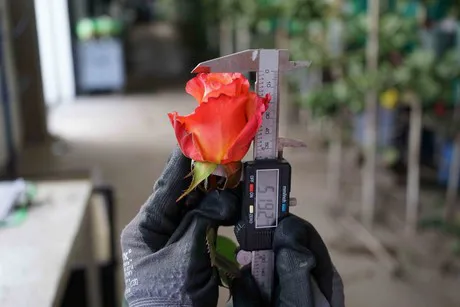
The region of Machachi is considered to be a blessed region thanks to its geographical position, the intensity of sunlight, and its climate, making it the perfect ecosystem to produce flowers.
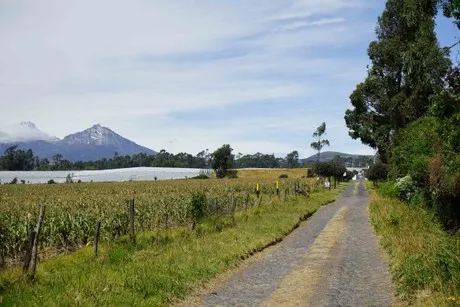
Photo of the Ilinizas Volcano from the entrance to the Flower Farm
This farm is family-owned and has 33.3 hectares of greenhouses. It is made up of 350 workers who work to guarantee that all its quality assurance processes are met. Virgin Farms spoke with some of the employees, and they spoke about the strict and innovative procedures carried out.
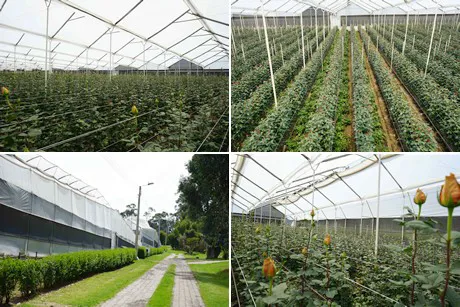
The tour began with an overview of the floriculture where they could appreciate all the innovations that have been made recently and its competitive advantages. It should be noted that the farm controls its entire value chain, which ranges from flower growing to transportation to its 40+ destinations.
Irrigation
Watering is the first step to guarantee a long-lasting flower. The water used by the nursery arrives directly from the defrosting of the Ilinisas volcano and goes through an ultrafiltration system before being used in the plantations.
Wilfrido Cazar, Production Manager, talked about the recipes and fertilization formulas they use. Their irrigation system is completely mechanized, so there is no place for mistakes.
They also have a team called Experience, which guarantees a perfect blend and a standardized formula for irrigation. Once the solution has been prepared, it is taken to a pre-mix tank, which combines all the solutions and creates an ideal nutritional formula to fertilize the crop. This equipment guarantees that constant irrigation is carried out in the established periods of time. When there is a lot of sunlight, the equipment detects it and automatically delivers another irrigation.
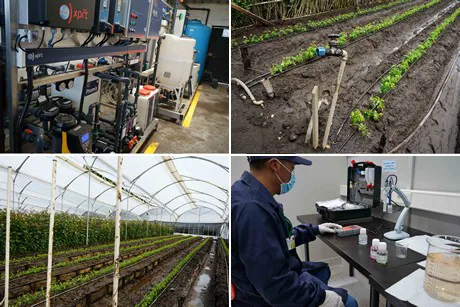
100% computerized irrigation system and fertilized water control. Each greenhouse receives an exclusive nutrient recipe according to their needs.
Premium location: The equator
It should be noted that the geographical area where EcoRoses is located and due to its altitude, the production cycle of a rose is 30% slower. This produces roses with longer and thicker stems, more intense colors and larger flowers.
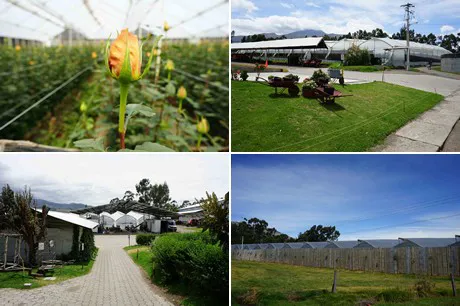
Post-harvest: Processes to extend the life of the flower
From the moment the stem is cut the flower begins to die, but it must do so slowly with outstanding performance and aperture rate. For this reason, the post-harvest process is critical in extending its life.
Ecuadorian farms have made investments in cutting-edge technology to guarantee the quality of roses at the production and post-harvest level. Every flower that enters this process may have fungal spores; insects, almost microscopic (thrips) that feed on the petal. Flowers can also develop a fungus called botrytis, which is a bacterium that rots roses. This is why they have an electrostatic sprinkler system, which minimizes the use of chemical products to clean any fungus or insects. Then they pass through ultraviolet lamps with a fungicidal effect. All these processes extend the life of the roses.
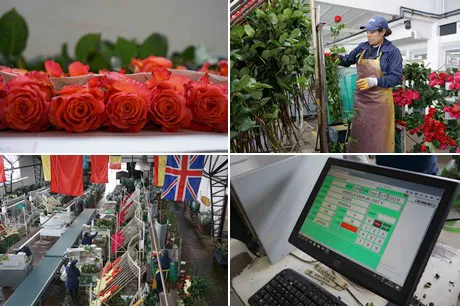
Cold chain
The cold chain is critical for the conservation of the flower. In the cooler, the temperature is always at 35.6 degrees Fahrenheit. It has devices such as aerocides, which are cleaners that eliminate any fungus or bacteria in the air. There is also equipment that removes ethylene, which is a hormone produced by roses and causes petals and foliage to decay.
Roses should spend 7 hours in a cooler after post-harvest; otherwise, forced cooling is carried out to ensure it reaches the proper temperature.
Roses remain in the cooler for 1 to 4 days. Then they are transported in refrigerated vehicles to the cargo agencies where they will be exported to their destinations.
Though a rose may seem delicate, it is very resistant. Just to give an example, it takes approximately 10 days for roses to arrive in Siberia and they can last about 10 more days in a vase. This is due to the cold chain process.
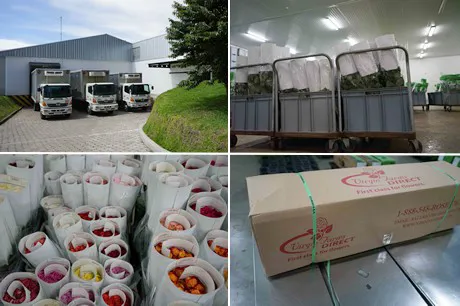
Roses from Virgin Farms in coolers ready to export. Hormones are eliminated with a complex cooling system and air filtration.
Key indicators to generate continuous improvement
EcoRoses uses a software called Unosof, which allows them to measure floricultural operations, generate projections and extract key indicators. Through this software, engineers can map everything that is happening throughout the farm.
This software also provides information on inventory availability and tracks the frequency of common issues such as fungi and botrytis. The system also detects which bunches have been harvested first, so that workers select these at the time of dispatch to guarantee the freshness of the flower.
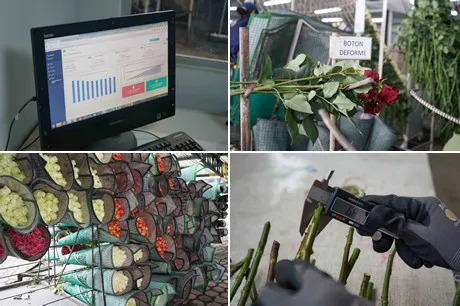
By using an advanced system for its quality control processes—ranging from sowing to transport—EcoRoses ensures their integrity and product duration. Their continuous strides to improve their procedures make them innovative cultivators that guarantee the consumer premium roses full of life and color.
For more information: Virgin Farms
Virgin Farms
1-888-548-ROSE (7673)
www.virginfarms.com
